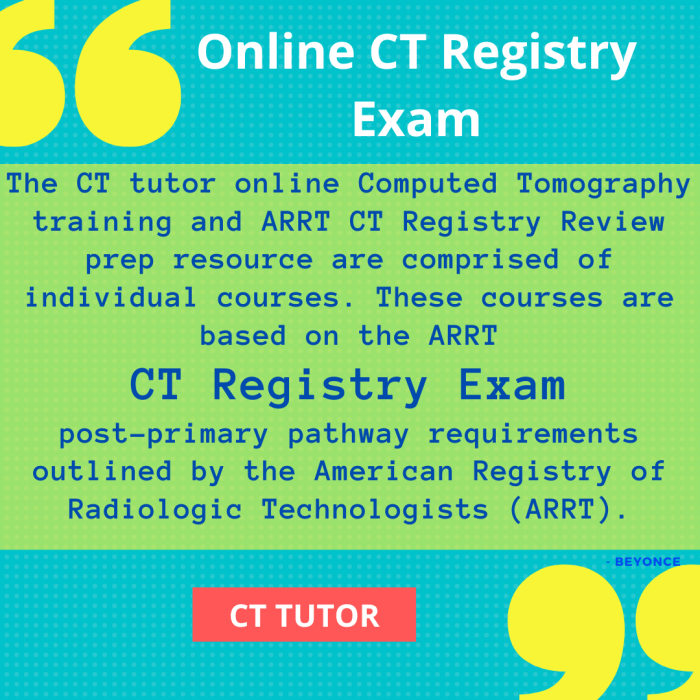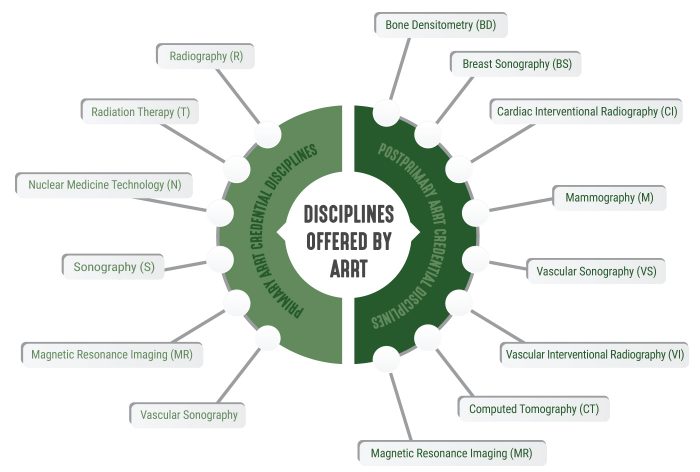The ARRT Nuclear Medicine Practice Exam stands as a crucial gateway for aspiring nuclear medicine professionals, serving as a testament to their knowledge and competence. Embark on this comprehensive guide to unravel the exam’s intricacies, equip yourself with effective study strategies, and emerge triumphant in your pursuit of nuclear medicine excellence.
Delve into the exam’s structure, content areas, and time constraints, gaining a clear understanding of the challenges that lie ahead. Discover a wealth of study resources, from textbooks to online courses, and learn how to tailor your preparation to maximize your chances of success.
ARRT Nuclear Medicine Practice Exam Overview
The American Registry of Radiologic Technologists (ARRT) Nuclear Medicine Practice Exam is a standardized assessment that evaluates the knowledge and skills of nuclear medicine technologists. It is designed to ensure that professionals in the field have the necessary qualifications to perform nuclear medicine procedures safely and effectively.
The exam consists of 150 multiple-choice questions and covers a wide range of topics, including:
- Radiation safety
- Radiopharmaceutical chemistry
- Nuclear medicine instrumentation
- Nuclear medicine procedures
- Image interpretation
Candidates are given 3 hours to complete the exam, which is administered at Pearson VUE testing centers across the United States.
Study Resources

There are a variety of study resources available to help candidates prepare for the ARRT Nuclear Medicine Practice Exam. These include:
- Textbooks:Several textbooks cover the content areas tested on the exam, such as “Nuclear Medicine Technology” by Anger and Kuhl and “Nuclear Medicine: A Primer” by Mettler and Guiberteau.
- Online courses:Online courses provide a structured approach to studying for the exam and often include practice questions and mock exams. Some reputable providers include the Society of Nuclear Medicine and Technology (SNMMI) and the American Society of Radiologic Technologists (ASRT).
- Practice questions:Practice questions help candidates identify areas where they need additional study and familiarize themselves with the format of the exam. Practice questions can be found in textbooks, online courses, and dedicated question banks.
The best study method for each individual will vary depending on their learning style and schedule. Some candidates may prefer to focus on reading textbooks, while others may find online courses or practice questions more helpful. It is important to experiment with different methods to find what works best.
Exam Preparation Strategies

In addition to using high-quality study materials, there are a number of effective exam preparation strategies that candidates can employ. These include:
- Time management:It is important to create a study schedule that allows ample time to cover all of the content areas tested on the exam. Candidates should break down the material into smaller chunks and set realistic goals for each study session.
- Topic prioritization:Not all content areas are equally important on the exam. Candidates should focus their study efforts on the topics that are most heavily weighted. The exam content Artikel provided by the ARRT can help candidates identify the most important topics.
- Stress management:Preparing for a high-stakes exam can be stressful. Candidates should take steps to manage their stress levels, such as exercising, getting enough sleep, and eating healthy foods.
Creating a personalized study plan is essential for success on the ARRT Nuclear Medicine Practice Exam. Candidates should consider their individual strengths and weaknesses, as well as their schedule, when developing a plan. It is also important to stay motivated throughout the preparation process.
Setting small goals and rewarding oneself for progress can help keep candidates on track.
Content Analysis

| Content Area | Topics | Percentage of Exam |
|---|---|---|
| Radiation safety | Radiation physics, radiation protection, radiation dosimetry | 20% |
| Radiopharmaceutical chemistry | Radioactive decay, radiopharmaceutical production, radiopharmaceutical quality control | 20% |
| Nuclear medicine instrumentation | Gamma cameras, SPECT scanners, PET scanners | 20% |
| Nuclear medicine procedures | Bone scans, thyroid scans, cardiac scans, brain scans | 25% |
| Image interpretation | Normal and abnormal findings, artifact recognition, quality control | 15% |
Key concepts, formulas, and procedures:
- Half-life
- Radiation dose
- Radiopharmaceutical preparation
- Gamma camera operation
- SPECT and PET imaging
- Image interpretation criteria
Sample Questions and Answers
| Question | Answer |
|---|---|
| Which of the following is a unit of radiation dose? | Gray (Gy) |
| What is the half-life of iodine-131? | 8 days |
| What is the most common type of gamma camera? | Anger camera |
| What is the difference between SPECT and PET imaging? | SPECT uses a single gamma camera to rotate around the patient, while PET uses two gamma cameras to detect coincidences |
| What is the most common indication for a bone scan? | To detect bone metastases |
Exam Day Tips: Arrt Nuclear Medicine Practice Exam
- Arrive at the testing center on time.
- Bring a valid photo ID.
- Dress comfortably.
- Bring a snack and a drink.
- Read the instructions carefully before beginning the exam.
- Answer the questions to the best of your ability.
- Don’t spend too much time on any one question.
- If you’re not sure about an answer, guess.
- Take breaks as needed.
- Don’t panic if you don’t know the answer to a question.
Post-Exam Analysis
After taking the ARRT Nuclear Medicine Practice Exam, candidates will receive a score report that indicates their performance in each content area. This information can be used to identify areas where additional study is needed. Candidates who do not pass the exam can retake it after a waiting period of 30 days.
The ARRT Nuclear Medicine Practice Exam is a challenging but achievable exam. By following the tips and strategies Artikeld in this article, candidates can increase their chances of success.
Query Resolution
What is the purpose of the ARRT Nuclear Medicine Practice Exam?
The ARRT Nuclear Medicine Practice Exam assesses the knowledge and skills of candidates seeking certification in nuclear medicine technology, ensuring their competence in patient care and radiation safety.
How long is the ARRT Nuclear Medicine Practice Exam?
The ARRT Nuclear Medicine Practice Exam is a 3-hour, computer-based exam consisting of 150 multiple-choice questions.
What are the content areas covered on the ARRT Nuclear Medicine Practice Exam?
The exam covers a comprehensive range of topics, including radiation safety, nuclear medicine physics, instrumentation, radiopharmacy, patient care, and quality control.
What are some effective study strategies for the ARRT Nuclear Medicine Practice Exam?
Effective study strategies include creating a personalized study plan, prioritizing high-yield topics, utilizing practice questions, and seeking support from study groups or online forums.